
2011: MY YEAR IN FILM
christopher funderburg

My Year in Film for 2011 can be reduced to this: I saw many films that I liked, a higher than usual amount that amazed me and almost nothing with which I identify strongly. That is, I saw a lot of good stuff (more good stuff than I normally see in a year) but far less stuff that's my stuff. In my mind, I couldn't help but contrast this year's list with my 2009 list, in which I only cited four movies on my "Favorites" list, but to this day feel incredibly passionate and energized just remembering those four films. In a couple ways, writing about the movies I consumed and my experiences with that consumption feels like a little bit odd of a project despite the fact that I've been writing these yearly reviews for eight years. For starters, all of the movies I liked best, all nine of them, weren't released in theaters in 2011. Only one was even released on home-viewing formats - so to follow my usual policy of writing about what I saw and my experiences with le cinema means that I'm going to mainly be writing about films you, reader, haven't seen; films that in a lot of instances you haven't even heard of.
Sure, that's not especially unique to 2011 - I'm sure you'll agree that it's always faintly obnoxious how these annual lists of mine are filled with movies in pre-release or floating around on the festival circuit. Just know that this year it will be dominated by them. I'll let you judge how it affects the obnoxiousness levels. My "Favorites" list breaks down into three tiers of descending quality: my favorite movies that I saw in 2011, all of which happen to be things that you didn't have the opportunity to see in theaters (the Irregularities); another half dozen movies that I think are really good and you've probably heard of or can seek out without much trouble (the Regularities); and finally, movies that I like and think are good, but let's not go too nuts or anything, ok? (Not Too Shabby.)
This all takes us back to my initial comments: I've had a lot of trouble putting together my thoughts on 2011 because all three tiers are filled with films that I somehow keep at arm's length. As always, there are films I like, but don't think are without flaws (I'm not here to tell you Final Destination 5 is as good as Halloween or The Texas Chain Saw Massacre) - but more than that, there are many films about which I feel strangely unsettled (Bobcat Goldthwait's God Bless America, for example.) Ultimately, there are only 2 or 3 films about which I feel possessive, that seem to belong to me, the way a favorite artwork automatically becomes your property. Maybe I just need for the bad and dismissive reviews to roll in to get my blood angried up and force me to passionately articulate my fondness for all these films that currently exist as question marks in terms of the wider culture. Maybe I'm not possessive now about God Bless America, but I might be once morons offering their commentary.
2011 was a great year for movies, but for some reason I can't commit to that idea.
IRREGULARITIES
ALPS.
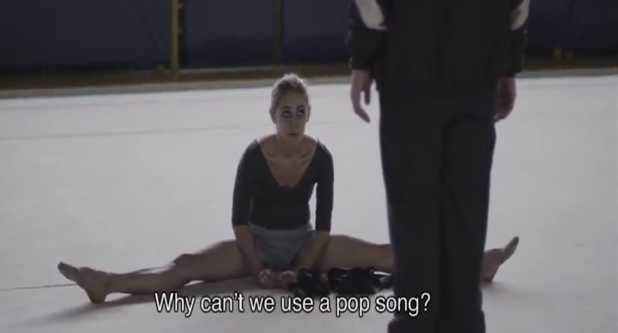
Here's the exception that tests my rule: I don't keep Girogos Yanthimos' follow-up to Dogtooth at arm's length or feel it has even a single flaw - I cradle it gently against my bosom and treasure it like the beneficent gift to humanity that it truly is. Like the surprise Oscar nominee Dogtooth, describing the plot proves difficult not only because of the strangeness of the story but because its oblique nature and the deliberate reveal of what's going on contribute so much to atmosphere of the artwork - Alps is a movie I want to tell everyone about and not tell them anything about it. I want for it to be enough to pique your curiosity to write that "the rarity with which great artists emerge means that you should see Alps blind, knowing nothing about it other than that taken along with Dogtooth, Alps proves Lanthimos without a doubt to be the real deal." That's wishful thinking (criticizing?) - could I just tell you that the oneiric labyrinth of Alps' narrative is compelling, emotional and beautiful even when difficult to navigate, that the strange story continuously reveals itself to be grounded in a recognizable reality laced with moving human longing? Or do I need to bring out the big guns: Aggeliki Papoulias' lead performance effortlessly blends the psychotic with the heart-breaking, balances humor and humanity, that you will not see a funnier and more tragic performance any time soon? How about this: the best Bruce Lee joke of all time. Of. All. Time. Like the Alps of the title, no movie could replace Alps, but who could complain if the movie they were scheduled to see were replaced by it?
Life without Principle.

It has always been a little mysterious to me how Hong Kong filmmaking mainstay Johnny To aquired his massive reputation. Most of his films are just fine, but he specializes in churning out fairly rote action thrillers with a single hook: here's Johnny Halliday in the lead role, here's a view of Triad politics shown from the bottom up, this time the lead detective is insane. If ever there were a time to apply the "good not great" label, it's to the work of Johnny To. I write that all as a preface to explain just how surprising it is that Life Without Principle turned out to be a bona fide masterpiece and the best film yet made about the 2008 economic crisis. This just isn't a twisty, raw and hugely effective Triad thriller, it's also a really truly - I'm not joking around here - brilliant critique of the role money plays in all our lives. It follows three interlocking stories: a terse cop and his young wife trying to decide whether to buy an apartment, a low level Triad foot-soldier trying to help a childhood friend and a callow loan officer trying not to get fired for poor production. The stories are brought together by a gregarious loan shark who reaps a windfall when the banks begin to fail - the early scene where he explains to the adorably over-matched, underperforming bank employee how the banks are a waste of his time is one of many highlights in a film impossibly constructed out of them. Each of the stories winds its way around a core concept of the relationship of principle to principal, the ways in which greed perversely appeals to our better nature, our desire for comfort and stability, how loyalty to family and friends can be twisted into self-destruction - or pointed outward to destroy the lives of those who trust us. On top of all of that, it's a ground-level view of the economic structures like mortgages and gluttonous policies that tore the world apart all the while smiling and nodding, totally convinced of their own virtue (or at least total lack of responsibility for the massive gobal economic catastrophies that ruined lives the world over.)
But the film belongs to To regular Lau Ching-Wan as the doggedly loyal, poignantly clueless Triad foot-soldier who who turns out to understand the world around him just as well as anyone. Ching-Wan's performance is both understated and overstated, combining a mess of tics with a reserve of dignity and empathy that never seems to find its bottom. It would be tempting to label him a holy fool, but that's hyperbolic - he's simply in a good man in an awful world. The sequence of Ching-Wan attempting to appeal to his brothers in arms to raise bail for a jailed compatriot is the best thing put on screen in the past 18 months - it's both sad and hilarious that his Triad brothers have given up on crime in order to pursue more profitable pursuits like harvesting scrap cardboard or running crappy noodle joints. Their responses to the indomitable Ching-Wan are touching and cringe-inducing. Few performances will make you feel such a wide array of emotions as Ching-Wan's in Life Without Principle. If the film has a villain - and it's not clear that it does - it would have to be Denise Ho's deeply self-interested loan officer, who gets into our good graces right away by convincing a meek old woman to invest her life savings in a highly volatile BRIC (Brazil, Russia, Indonesia, China) portfolio. Even in light of Ho's shamelessness, To provides the character with a certain depth - he understands that low-level bank employees are on the hook for the bad decisions of their superiors just as much as Ching-Wan's deeply trying existence is no fault of his own. He doesn't let Ho off the hook entirely - there's no way to sympathize with her calculating swindles - but he doesn't quite bring the hammer down on her either. Just as naturally as he suspends judgement on the Triad gangsters, he does his best to examine the nuts and bolts of low-level banking - he doesn't create a single character in this film solely to condemn him. The film itself is a tour de force of clever, original ideas and tense thriller set-pieces, a relentlessly great film that can't be predicted and constantly reveals new facets of its brilliantly detailed world of mob boss birthday parties, corporate loan advice videos, backroom stock vultures, West Kowloon bail set-ups and intense police stand-offs. It's as though To saved up all of the best ideas he ever had in his life for a film and Life Without Principle is the result.
God Bless America.
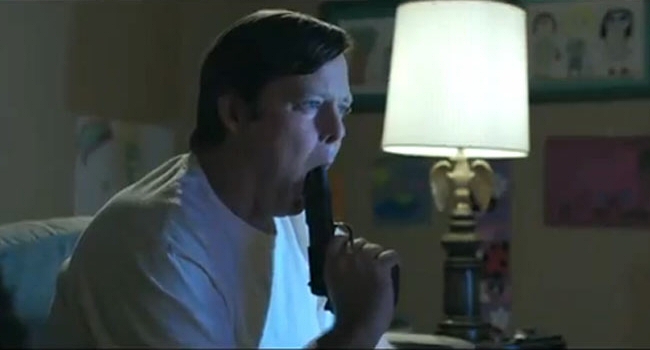
You should know by now that all of Bobcat Goldthwait's films sound more childlishly provocative than they really are, their protagonists perfectly suited to cheap shock comedy: an alcholic clown, a woman who gave a dog a blowjob, a father dealing with the auto-erotic asphixiation death of his hateful teenage son. It doesn't help that Goldthwait's films are comedies and don't shy away from the obvious humor of their situations. God Bless America falls squarely into that same trap - I'm hesitant to speak a good word in its favor because its premise will attract the attention of the most witless of audiences, if it attracts any at all. Just as I had an unfortunate number of discussions with fans of World's Greatest Dad who focused solely on the foul-mouthed teenager's deeply shitty attitude and outrageous verbal fulisades, I'm dreading speaking to folks who are in love with the idea of a middle-aged fan and a teenage girl going on a murder spree killing reality t.v. stars and singing competition contestants. But as with all Goldthwait's work, there's much more going on with God Bless America than the overt outrageousness and extravagant shocks. A senstive and thoughtful examination of loneliness, it incisively delineates how punishing and invasive pop culture feels when you are all alone, how much popular entertainment has become fueled by cruelty and smugness, just how mean the world has become. It's a film about how and why so many Americans have become self-satisfied with their own awfulness, how being a boorish jerk and picking on the little guy has become ingrained in our cultural DNA. But even beyond that, it's a moving portrait of a good man reaching a dead end in life through no clear fault of his own and how little he has to give the world, how few options he has to redeem himself. Joel Michael Murray (now officially the second best Murray brother - sorry Brian Doyle) brings a gravity and thoughtfulness to his role, elevating it to a whole different level of complexity, his easy deftness with the comedy blending harmoniously with his natural defeated decency. Tara Lynne Barr is almost (but not quite) as good as his teenaged partner in crime, their unlikely bond imbued with a believable father/daughter dynamic that would feel almost wholesome, if it didn't revolve around a murder spree. But maybe I've erred to far in the wrong direction: I should also point out that this is the funniest movie I've seen in at least half a decade, a reasonable contender for the funniest movie I've ever seen in my life. It blows by, a non-stop assault of brilliantly dark gags, a relentless explosive of genius comedy - I wanted to watch it again immediately after the credits rolled. This is the type of film that if it succeeds will have an idiotic backlash. Get in on the ground floor: it'll be more fun than turning up your nose at the most unforgettable comedy in a long goddamned time.
Headshot.
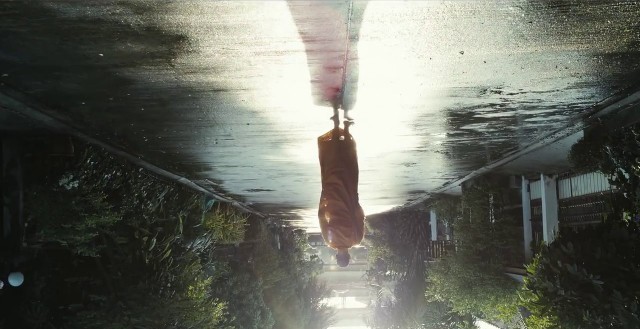
Pen-ek Ratanaraung first gained international attention as a sorta Apichatpong Weerasethakul-lite, another Thai filmmaker making dreamy, slow-moving relationship fantasias. Ratanarang's work like Last Life in the Universe and Nymph always had one foot more on the ground than Weerasethakul and half of the pure cinematic style, so his reputation suffered as a result. Fortunately, there's no mistaking his story of a good cop turned exterminating angel turned Buddhist for anything that would come out of Weerasethakul's insistently oblique and metaphysical imagination: what we have here is an actual action movie dressed up in some quite remarkable trappings. It's a quiet contemplation of the nature of existence loaded with shoot-outs, double-crosses and gorgeous femme fatales - with Headshot, Ratanaruang steps out of the shadow of his Palme d'Or winning compatriot and into the company of Jean-Pierre Melville. The high-art flourishes and languid tone of his earlier work are still present, only with the added benefit of a gripping, pulpy plot. Ratanaruang jumps around in time and plays games with the image to disorient the audience, but the story remains straight-forward and simple, as forcefully direct as one of J. Lee Thompson's reactionary appeals to the lizard part of our brain. Of course, the difference between Thompson (and even Melville) is that Ratanaruang has made a film about the difficulties of seeing the world clearly, about the essential human problem of knowing how to be judicious. Beyond that, Ratanaruang makes full use of the central metaphor of his movie (the hero sees the world upside-down after being shot in the head - it's based on an actual medical condition) to illustrate how we can become lost to ourselves, how we can lose grip of our most basic perspectives of the world and our role in it. He makes great use of the tension between Buddhist self-abnegation and a law-and-order drive for justice as well as further contrasting Buddhism's core principles with the annihilations of drug addiction and the self-denial of true love. Did I mention it features warehouse shoot-outs, drug-deals gone wrong, a duo of mind-meltingly gorgeous seductresses, brutal assassinations and the simple joy of watching a good cop get pushed too far? By melding Thai mysticism with Euro-art gangsterism, Ratanaruang has finally come into his own.
Chicken with Plums.
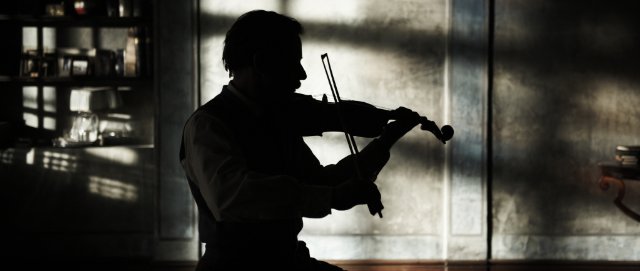
With their debut feature Persepolis, Marjane Satrapi and Vincent Paronnoud proved they had at least one stone cold classic in them. Their entirely different except-in-terms-of-amazingness follow-up Chicken with Plums leads you to assume that they have another half dozen masterpieces in them just waiting to tumble out. Matthew Almaric stars as a legendary violinist who decides to lie down and die after his dispeptic wife (Maria de Medieros) smashes his prize violin. From there, we're treated to flashbacks to the story of Almaric's great love, flash-forwards to the tale of his gauche ex-patriot son and an unexpectedly reasonable meeting with the Angel of Death. Chicken with Plums' closest spiritul antecedent is the work of Jean-Pierre Juenet, another French fantasist with a jolting cynical edge that frequently punctures his whimsy. Satrapi and Paronnoud prove themselves, however, capable of an even deeper cynicism and, perversely, more intoxicating romanticism - their stylistic risks (including a mixture of live and animation, puppetry, parable and even television parody) going far beyond anything attempted by all but the most ambitious of filmmakers. Chicken with Plums blends comedy, pathos and romance, a frequently solemn/just as frequently jokingly outlandish series of vignettes ranging from the metaphysical to the grotesque to the poignant. It remains to be seen how critics will respond to this film, whether its lack of the timeliness that made Persepolis a favorite will work against it. I hope it manages to find the audience it deserves - it would be difficult to imagine a more heart-breaking and original film.
I Wish.
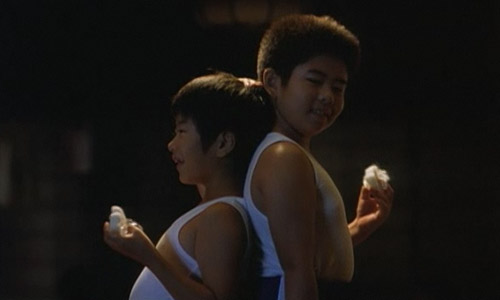
Hirokazu Kore-Eda has had an uneven career, alternating solid hits (Still Walking, Nobody Knows) with misconcieved whiffs (Air Doll, After Life.) Even still, there's very little variation in the quality of his work: his creative peaks are modest and his failures admirable, even worthwhile. In light of that, I didn't expect I Wish to be so emotionally powerful and perfectly executed - I knew he was capable of making great films, but not this great. The story concerns two young brothers separated by divorce (one lives with the mom, the other with the dad) determined to reunite their family. Their adorable plan revolves around sneaking out for the weekend to meet halfway between their two homes... where a local legend has it that if you make a wish as the north & south-bound super-trains pass each other, your dreams will come true. Their plan, which involves enlisting a handful of their best buds, feels authentically childish - part clever, part totally half-baked. The children's charming resourcefulness in the face of difficult situations (a favorite Kore-Eda theme) generates tension against the fact that what they're doing is dangerous and ill-concieved - it puts the audience in a position of rooting for them to suceed, but also to get caught before things get out of hand. The film's realistically heavy depiction of domestic strife and emotional complexity make their journey feel like a mature, non-irritating version of The Goonies, a determined quest undertaken kids not willing to quietly submit to the adult problems forced on them by an indifferent world. I can't overstate the uniform excellence of the performances by the child actors, not just the central duo, but their cadre of like-minded wish-seekers - getting one top-notch performance from a kid is a rare feat, engineering six in a single film might be Kore-Eda's greatest feat (one he pulled off with 5 kids in the similarly kid-centric Nobody Knows - I guess he's adding degrees of difficulty to push his artistic boundaries. I'm looking forward to his kid version of The Dirty Dozen that take places behind Chinese lines during WWII.) Bouyed by the ebullient charm of its pack of child heros, I Wish is the rare kind of film that could be described as sentimental without that being a bad thing. Taken along with Pen-Ek Ratanaruang and Johnny To, I Wish means we're on a real run of established Asian auteurs delivering their best films, by far. I hope all three build on their success - for Kore-Eda, there seems to be the most room to continue upward, an even more exciting prospect maybe than I Wish's singular excellence.
Himizu/Cold Fish.
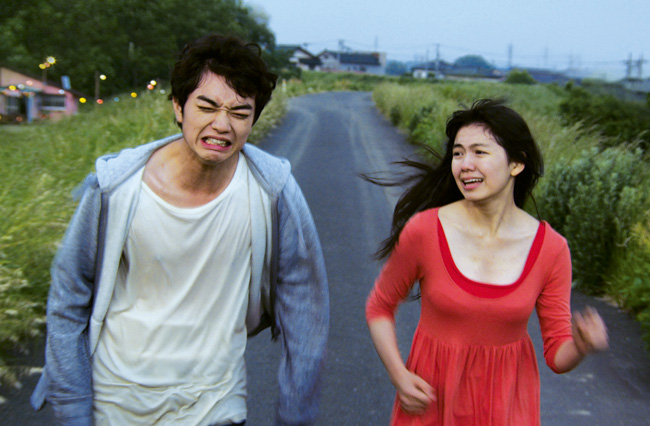
I've been very late catching on to Shion Sono. I saw his Suicide Club when it was first making its rounds a decade ago and liked it just fine but mentally filed it away with a lot of other standard "aggressively unpleasant extreme Asian cinema." Although I've always been a fan of Takashi Miike and keep up with J-, K- and other letter-based subgenres, I just never really felt much connection to subspecies of Asian extremity that tends away from genre trappings towards realistic human misery. I only recently got up to speed with Sono - and in a major way. I enjoyed Himizu at this year's Toronto Film Festival, actively sought out his epic 4-hour Love Exposure and then happened upon Cold Fish once it turned up on Netflix Instant. I have to admit: I underestimated him. His movies have a definite philosophical perspective combined a healthy dose of original artistic maneuvers; they don't deserve to be lumped in with larger "just how awful can this get?!" shock pieces. If Suicide Club seemed trendy in 2001 as part of the emerging New Wave of blood-soaked Asian flicks, Sono's subsequent work proves that's only a coincidence. There's copious gore and debasement in his work, but Sono's monsters are stitched together from the punishingly banal indignities of family and middle-class life. Himizu concerns a pair of teenaged outcasts coming together over their shared experiences of horrific natural disasters like the tsunami hitting their hometown of Fukashima and their callow parents' relentless abuse. The duo, an eccentrically extroverted middle-class girl and a sullen trailer-living boy, never quite bond - the indomitable girl spearheads their tumultuous relationship in spite of the often cruel resistance of the boy - but the couple still end up keeping each other precariously afloat over raging torrents of earthquake devastation, violent yakuzas and mass stabbings. It's a diffuse, sometimes wearying film, but never less than unique and unpredictable, full of amazing darkly weird bits like the gallows the girl's parents are building because she promised to hang herself if they did so.
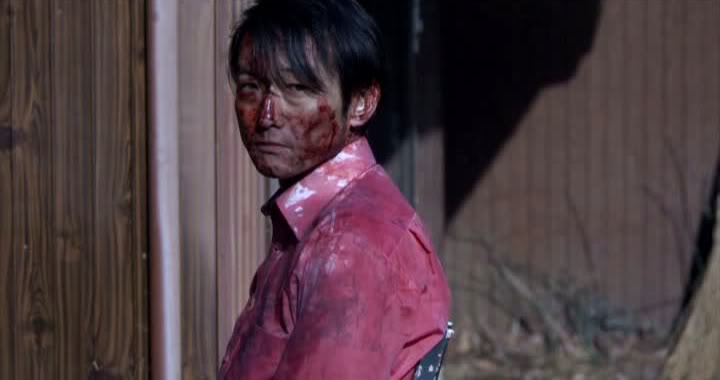
Cold Fish also touches on the cruelty of family and the sociopathic insanity lurking right around every corner. A Snake of June's eerily alluring Asuka Kurosawa plays the female half of a married couple that in addition to running a lavish exotic fish emporium also gleefully engage in transgressive sex and serial murder. Based on a true story, an ineffectual small-time fish store owner gets drawn into the terrifying couple's vortex of insanity after his daughter gets surprisingly bailed out of a shoplifting charge by the murderous exotic-fish dealer. From there, the jovial killer rapidly sets up the malcontent daughter with a job at his emporium alongside a dozen other scantily clad sales-girls who live in a dormitory above the shop. His next move is to rape the hero's superhot and all-but-willing wife. Before long, he's got our cowardly bespectacled hero by the short hairs (literally), jerking him around into a life of theft, sexual debasement and corpse-grinding. It's a notch above Himizu in terms of grisly focus and narrative tautness, the hero's life madly swirling down the drain with no relief in sight. Shrewdly, Sono uses both films as an excuse to skewer the allure of violence and the intoxicating feeling that comes from abusing power, pulling apart how both are natural responses to feelings of helplessness and misery but also utterly useless and self-defeating in the larger scheme. Sono creates depraved worlds out of suburban anxiety - he affords us no easy out, forcing us to understand everyday evil and the pathetically small, failing ways in which we attempt to fight the darkness by becoming one with it.
Kotoko.
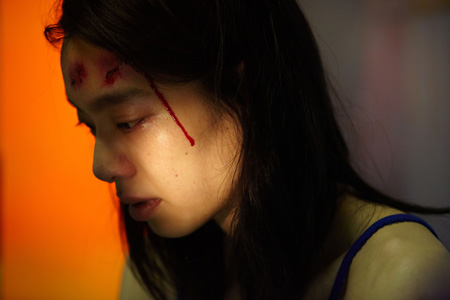
Some films are simply beyond reproach or criticism; they exist on a plane of meaning that exempts them from things like letter grades and stars of approval. Making abstract something which so essentially is wastes a reader's time. To praise Kotoko might give you the wrong impression - I am in no way recommending you see it. Shinya Tsukamoto's work has always been literally obsessed with viscera and this film surely ranks as his most visceral film to date: if you can handle a schizophrenic woman constantly putting her baby in fatal danger when not engaging in self-mulitation and brutal sado-masochism, have at it. However, I would be also just as quick to emphasize that Tsukamoto is not a shock-meister or even a genre, but a poet; he creates shockingly beautiful sui generis explosions of image and sound out of the rawest forms of human malignancy. The star of his latest film, a Japanese chantuese named Cocco, imbues the film a savage intimacy - seeing Kotoko is like reading your sister's diary and finding out she's bulemic, suicidal and frequently contemplating strangling the family cat. It's a heavy, heavy film, levened with most of pure cinematic beauty, I saw no more aesthetically rich and original film all year long - Tsukamoto's effortless manipulation of sound design remains an outstanding strength and his ability to build moving/terrifying fantasy sequences on clearly limited budget impresses. Some films rate as too difficult to stomach for all but the most jaded and self-congratulatorily cynical of audiences; while Kotoko belongs to those ranks, it should be noted that he's not interested in cheap shocks or violence and abuse for its own sake. He's genuinely interested in emotional violence and self-abuse, in mental illness and the possibility of beauty in even the most wrecked and ruined of lives. Tsukamoto himself co-stars as a revered novelist and his self-effacing turn deserves credit for its ugly autobiographical elements; he's filmmaker not even slightly worried about humiliating himself in pursuit of emotionl truth. Certainly, his jagged psychodrama doesn't worry about its audience's reaction, it affectlessly employs a dialectic of ugliness and truth producing beauty. And maybe I'm mincing words about such a funny, scary, upsetting movie: there are few cinematic experiences as searing as Kotoko. You will leave the theater branded by Tsukamoto's unmistakable, humble genius for awfulness.
REGULARITIES
Margaret.
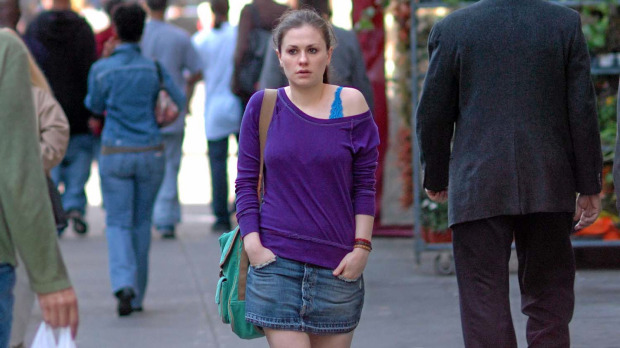
Kenneth Lonergan's follow-up to You Can Count on Me gained notoriety for its constant delays finding its way into theaters. Two of its producers are long dead (Anthony Minghella and Sydney Pollack), ire directed by its characters against "the president" is intended for George W. Bush and there's even a scene where lead actress Anna Paquin goes to the movies and her options include Flightplan and Roll Bounce. Lonergan endured endless quibbling with his collaborators and backers, ending up in court just trying to get the mess sorted out. The film's distributor dumped it with a release that would have needed to be twice as thoughtful in order to be described as "perfunctory." In light of its troubled history, even supportive critics have taken to presenting it as damaged goods and that's the mindset with which I went to see it, "it's a shame about Lonergan's film, I hear some good parts were salvaged and without interference it really could have been something." Well, screw that noise: this film qualifies as a masterpiece under any circumstances and a fucking miracle considering. Let me be clear, there's no need to cut it slack - this film holds up to any standard to which you'd like to apply to it. Paquin plays a high school student equal parts capricous and sincere, a very true-to-life mix of serious emotions and self-involved short-sightedness. When she plays a role in a bus accident that leaves a woman dead, she latches on to the situation unsure just what it is she's pursuing as she steps into the lives of the bus driver, the police investigators and the victim's best friend. Is she after justice? Forgiveness? Or just eager to a play a role in the intense drama springing up around her? It would be tempting to say she's finding herself, if not for her unflinching self-possession, her unwavering belief in what she says in any given moment, regardless of how her feelings change wildly from one moment to the next. Like You Can Count on Me, humor courses through the film, Lonergan unearthing dark comedy from Paquin's operatic view of her role in the world. However, this is not to say he does not take her character absolutely seriously - it's not a satiric potshot taken at a deluded youth, but a painfully true-to-life examination of the narcissisms from which every human being is doomed to suffer. Lonergan's follow-up to You Can Count on Me is much more expansive than its predecessor, more densely packed with characters and plot-threads, much more complexly concieved and ambitious; in every sense, it is an attempt to exceed his excellent debut. I'm not sure it's a better film, but understand this: you won't need to forgive it for outside interference. Lonergan's astounding vision comes through clear as day. It's the real deal, so good that nothing could stand in its way.
Crazy Horse.
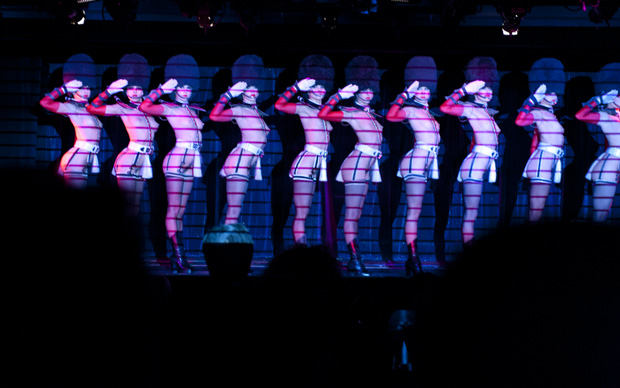
In my year end write-ups, I go out of my way not to reiterate my TIFF write-ups, but in the case of Frederick Wiseman's documnetary about a weirdly pretentious legendary French strip club, I really think I put down exactly what I have to say: I'm not sure if Wiseman intended it, but this is the definitive (the most cruel and hilarious for sure) deconstruction of the French proclivity for inappropriate self-seriousness. In reference to the opening of the new season, the man behind the titular burlesque house's stage production says "I want a show that will impress the intellectuals." Do you really need to know any more than that? The show features set-pieces like "the erotic cosmonauts" and would you be surprised to here that this whoppingly unsexy glitter-smeared and purple-wig bedecked disco spectacle was directed and conceived of by two gay men? Its a horror-show of disembodied undulating butts. It will make want to never have sex with a French person. Tellingly, the opening night audience consists almost entirely of tourist couples and the elderly. Honestly, this strip club has issues that can't be solved no matter how many androgynous tap-dancing busboys they throw at the problem. The film itself is a visually gorgeous black comedy on Wiseman's favorite theme: the incredible amount of effort humans have to spend on building and maintaining their delusions. I can't say for certain that Wiseman doesn't admire the Crazy Horse (he is elderly, after all) but I don't think he would deny that the proprietor's intellectual approach - pridefully mindful of history employing classically trained dancers who repeatedly balk at any of the more "tawdry" elements - even Wiseman would admit that this approach drains the show of any spark and danger, anything sexy. What we're left is a burlesque of burlesque. The hilariously off-key theme-song (written and produced by the bug-eyed assistant director of the show who has dreamed of working for "The Crazy" his whole life) has been stuck in my head for weeks. See? That was some good writin'.
(continues on next page with more REGULATIRIES and a couple films that were NOT TOO SHABY)
<<Previous Page 1 2 3 Next Page>>
home about contact us featured writings years in review film productions
All rights reserved The Pink Smoke © 2012